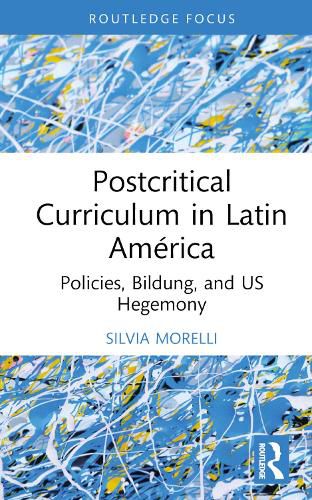Readings Newsletter
Become a Readings Member to make your shopping experience even easier.
Sign in or sign up for free!
You’re not far away from qualifying for FREE standard shipping within Australia
You’ve qualified for FREE standard shipping within Australia
The cart is loading…






This book, drawing on a range of postcritical theories including postmodernism, poststructuralism, and postcolonialism, provides a comprehensive analysis of the current state of curriculum in Latin America.
The book underscores the relationship between curriculum, didactics, and Bildung in the Latino field, acknowledging the hegemony of the United States. It initiates dialogues between scholars from various Latin American countries, promoting the concept of translation and the didactic tradition as a political practice. This practice enables the identification of new scopes and a privileged language, challenging the dominant paradigms and offering fresh perspectives. Recognizing the need for intervention, the book depicts the intellectual history of the field in Argentina and across Latin America. It serves as a critical resource for understanding the complexities and nuances of curriculum studies in the region.
This work will appeal to curriculum studies scholars, researchers, faculty, and postgraduate students worldwide. It offers a unique lens to view and understand the educational landscape in Latin America, making it an indispensable addition to the discourse on curriculum studies and educational research. It challenges readers to rethink traditional approaches and explore new avenues in curriculum studies.
$9.00 standard shipping within Australia
FREE standard shipping within Australia for orders over $100.00
Express & International shipping calculated at checkout
This book, drawing on a range of postcritical theories including postmodernism, poststructuralism, and postcolonialism, provides a comprehensive analysis of the current state of curriculum in Latin America.
The book underscores the relationship between curriculum, didactics, and Bildung in the Latino field, acknowledging the hegemony of the United States. It initiates dialogues between scholars from various Latin American countries, promoting the concept of translation and the didactic tradition as a political practice. This practice enables the identification of new scopes and a privileged language, challenging the dominant paradigms and offering fresh perspectives. Recognizing the need for intervention, the book depicts the intellectual history of the field in Argentina and across Latin America. It serves as a critical resource for understanding the complexities and nuances of curriculum studies in the region.
This work will appeal to curriculum studies scholars, researchers, faculty, and postgraduate students worldwide. It offers a unique lens to view and understand the educational landscape in Latin America, making it an indispensable addition to the discourse on curriculum studies and educational research. It challenges readers to rethink traditional approaches and explore new avenues in curriculum studies.